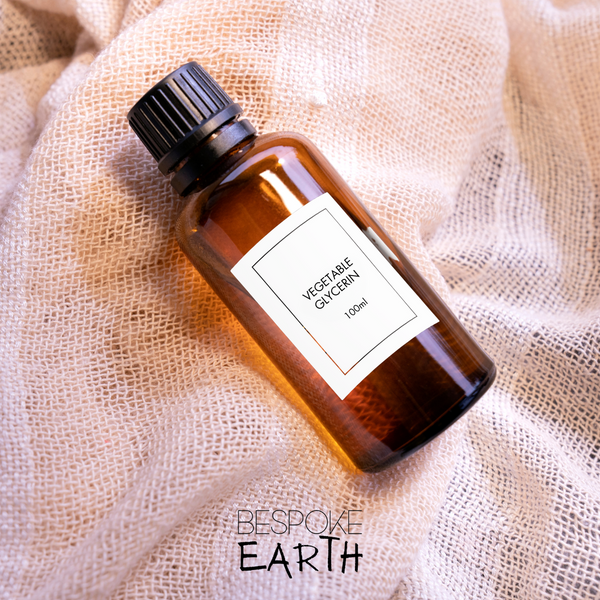You have no items in your shopping cart.
Vegetable Glycerin - 100ml
SKU CODE: BE-CONS-GLY100

R 29.00
Vegetable glycerin, or glycerol, is a clear, odourless liquid produced from plant oils, typically palm oil, soy, or coconut oil. Palm and coconut oils are natural triglyceride mixtures; each triglyceride is composed of three fatty acids esterified with glycerin.
Vegetable glycerin has a number of valuable applications that include cosmetic products, foods, and as a replacement for alcohol in herbal and botanical tinctures. Many household products, including lotions, shampoo, and toothpaste, contain vegetable glycerin.
Glycerin is added to these products because it is a humectant; a substance that attracts moisture to the skin. Glycerin leaves your skin hydrated. Glycerin soap, for example, is popular for that very reason.
Glycerin is hydrophilic (water-loving), and is used to keep products from getting too dry. This emollient (moisturising) effect also finds use in hand creams. It is a humectant, which helps draw moisture from the air.
Glycerin keeps hair hydrated by drawing moisture from the air to the hair shaft. As a conditioner, it’s especially beneficial for curly hair, which tends to be drier due to the shape of the hair shaft. It helps curls form better and works against that dreaded curse of the curly girl: frizz.
For cosmetic products that deliver an active ingredient, a humectant can increase the solubility of the active ingredient, making it more easily absorbed by the skin.
Vegetable glycerin may be used as a solvent and substitute for alcohol when producing botanical and herbal extracts. This is advantageous for people who wish to avoid alcohol exposure. The hydrating effect of glycerin makes it ideal as a topical remedy for burns.
It can also be manufactured from petroleum, or from glycerides in fats, often as a byproduct in the production of soap - and for this reason, it is essential to make sure that your glycerine is in fact plant-based.











